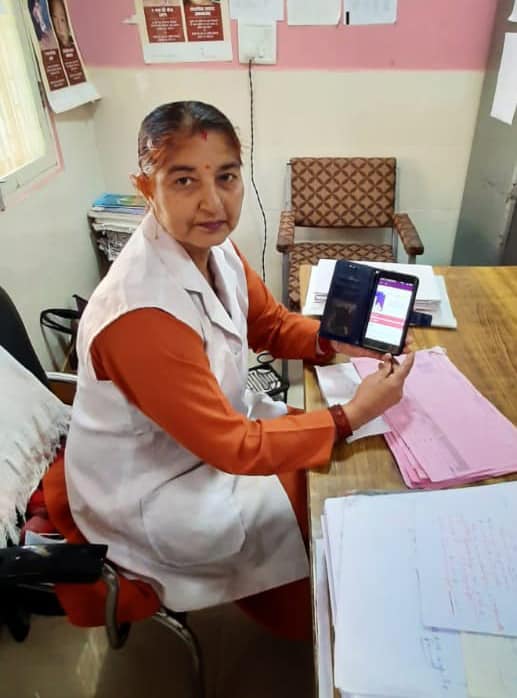A Learner-centered Journey of Capacity Building: Rapid Immunization Skill Enhancement Content Development
February 19th, 2021 | viewpoint
In August 2017, the Ministry of Health and Family Welfare (MoHFW), Government of India, and Gavi, the vaccine alliance, entrusted JSI to expand the possibilities for immunization capacity building, capitalizing on the technology already in the hands of almost every health worker: the mobile phone.
When Rapid Immunization Skill Enhancement (RISE) was conceptualized and JSI started the project, COVID-19 was nowhere on the horizon. We envisioned that RISE would strengthen existing capacity-building activities, but by the time the first module was rolled out in March 2020, the world was hit by COVID-19. JSI curated the needed content for the training from the immunization handbook for health workers. Using a blended learning concept, a first-of-its-kind learning system was developed, and the plan to implement in five districts of five states came together.
The RISE training, which is implemented with GAVI-HSS2 funding through the MoHFW, is available as an app on smartphones. Currently, there are five courses designed to build critical skills in vaccine delivery:
The first module went live in March 2020 and health workers received SMS notifications on their registered phones. WhatsApp groups used by health workers also conveyed information about the new system.
Learners quickly began accessing the content and the learning management system (LMS) dashboard showed they were completing modules quickly. More importantly, improved knowledge was reflected in the pre-and post-assessment scores. It became apparent that the content was both engaging and effective, as we noticed learners logging in at all hours to study. Self-directed learning for the auxiliary nurse midwives (ANMs)—our main goal—was being achieved.
It was a two-pronged approach. We used methodologies based on adult learning principles, instructional design, inclusivity, different learning styles (V-visual/A-aural/R-read/K-kinesthetic learners) and gamification. Audio-visual interactive content interspersed with quizzes and games made the course useful and fun.
The modules also have pre-and post-assessment, and learners can generate e-certificates in the app and show them to colleagues and family. This recognition has been one of the biggest motivators for learners.
Secondly, we designed the content to be relatable to users: the narrator resembles a medical officer, there are familiar village scenes and games that use daily life situations, making the content close to the hearts of learners.
Perhaps the most important step was translating the courses into the four regional languages. This meant weeks of ‘round the clock work with several team members, but it allowed health workers to learn with minimal external supervision.
The five-course modules were disseminated between March and July as COVID-19 surged through India. As of December 2020, 78 percent of the registered 2,603 learners had completed all modules. We resolve their technical, LMS, and content-related queries promptly on WhatsApp groups. Our support has built the trust of the learners and they have remained engaged with RISE throughout.

In India, where most vaccinators are women, RISE is emerging as a tool of women’s empowerment and it is clear that learners are gaining respect in the eyes of their families and communities, too. Fifty-five-year-old Mrs. Asha Devi sent her e-certificates to her son who was studying away from home. Her son told her how proud he was of her for learning at her age. His praise delighted and motivated Mrs. Devi, who has embraced online learning, much like her son and other new-generation students.
RISE has demonstrated that, given the right kind of tools and environment, learners can embrace and take responsibility for their learning. We look forward to broadening RISE’s topics and extending it to more learners.
We are thankful for the stewardship of the Ministry of Health & Family Welfare, under which JSI has developed the RISE model of capacity building through an extensive consultative process of the national and state working groups comprising immunization partners and state governments.
Written by Dr. Parthasarathi Ganguly, Project Director; Dr. Puskarr Deshmukkh, State Training Officer; Mr. Faizan Ali, State Training Coordinator; Ms. Sohini Sanyal, Learning & Capacity Building Specialist
We strive to build lasting relationships to produce better health outcomes for all.